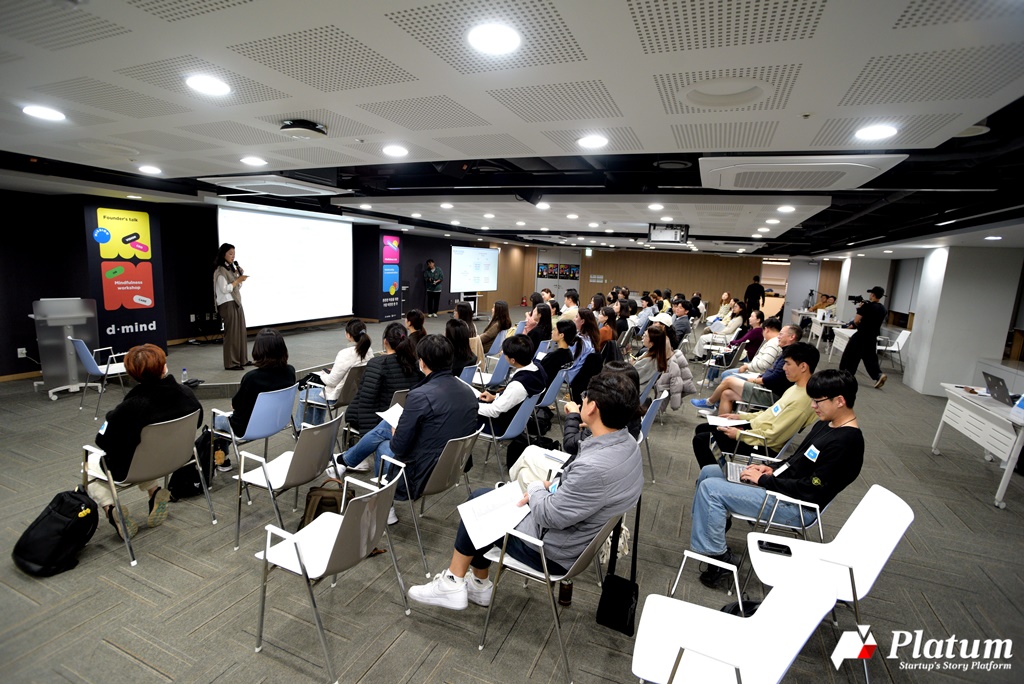
“Every little wave cuts us, hurts us, and we are so vulnerable.”
“We want to be loved, we want to be accepted, we take a knife to our souls to fit in with the way others see us.”
“There is only one way to deal with anxiety. Find your own security blanket.”
“All illness comes from loss. Either the loss of something you hold most dear, or the loss of yourself.”
“We are all borderline people, on the edge of normal and abnormal.”
– from the Netflix series, Daily Dose of Sunshine –
Entrepreneurship, epitomised by start-ups, has become the economic buzzword of many countries. In line with this trend, many unicorn companies have been created to represent the country. However, many entrepreneurs complain about the mental and physical stress of the start-up process, which fails in 80% of cases.
While entrepreneurial support programmes around the world are becoming more sophisticated, one area that has yet to be addressed is mental health. While there are many programmes that focus on raising investment or growing revenue, there are few that focus on the mental health of founders. It’s a gap in the diversity of the ecosystem that doesn’t show up in the numbers.
According to the Startup Founder Mental Health Survey Report, published last July, the mental health of entrepreneurs is failing by every measure. They have a higher prevalence of depression, anxiety and suicide than the general population. 88 (32.5%) suffer from moderate or severe depression, higher than the national average of 18.1%, and 55 (20.3%) suffer from anxiety, much higher than the national adult average of 8%. 2 in 10 founders are at high risk of suicide and require treatment.
The stressors that accounted for the largest proportion of founders’ responses were funding pressures and raising investment (121, 44.6%), followed by factors related to organisational management and human relations (55, 20.3%) and poor performance and underperformance (53, 19.6%). Longevity in business was another stressor. Founders who had been in business for more than five years had higher levels of depression, anxiety, suicide risk and stress than those with a shorter business history.
On the positive side, there has been a lot of discussion about mental health since COVID-19. It’s not just start-ups, but various companies that have recognised the need.
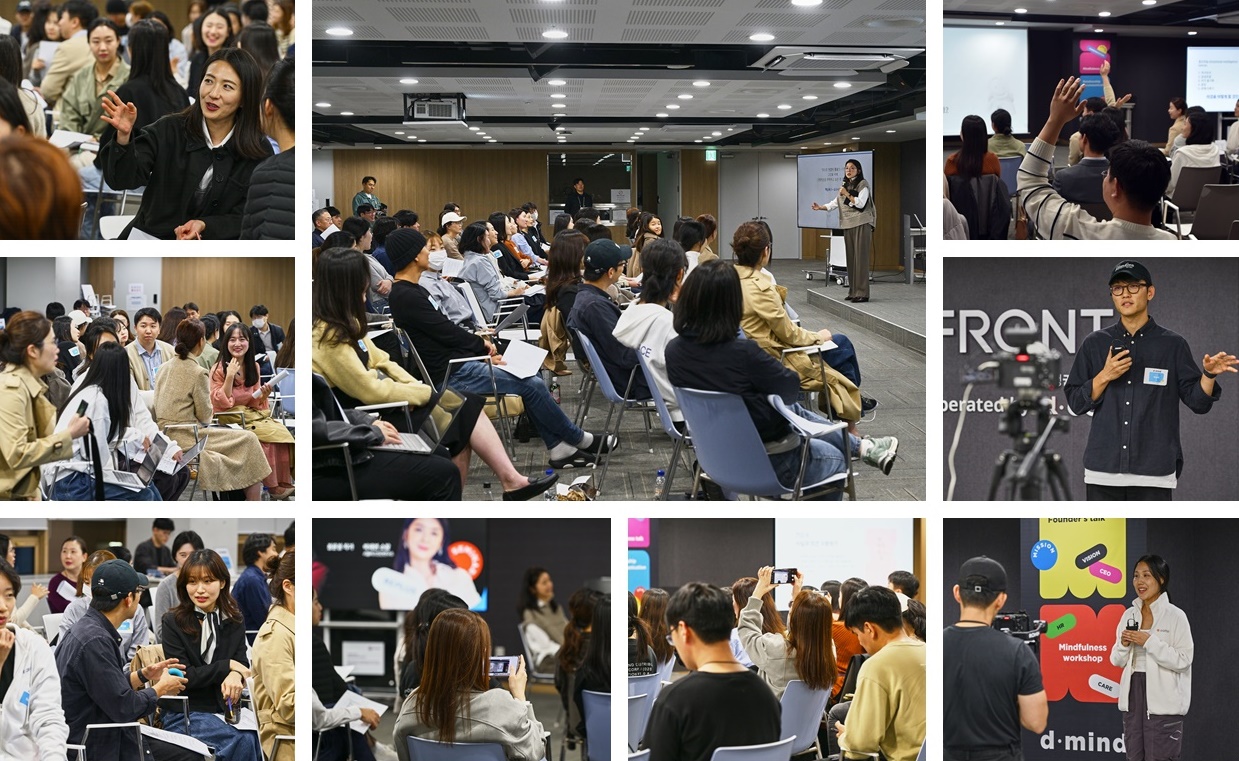
D.MIND(디마인드), a mental health programme for founders and employees of startups that the Banks Foundation for Young Entrepreneurs D.CAMP(은행권청년창업재단 디캠프) has been running since 2019, ran for three days starting on 24 October at Mapo FRONT1.
On the first day of this year’s D.MIND, Dr. Dongseon Chang, a brain scientist, and Jee-Hyun Ha, a professor at Konkuk University, held a seminar for startup employees who are experiencing anxiety and lethargy. On the second day, writer Moon-jung Jung and Jaeyeon Park, CEO of Replus Humanlab, spoke about human relations and communication in organisations, and on the final day, Miroo Kim, CEO of People+Culture, led a workshop to improve founders’ self-awareness and resilience.
The startup founders and team members who participated in the programme spoke highly of the programme. Representative A, who attended the 1:1 consultation, said: “I didn’t have a place to talk about my feelings, but I felt like I had found a bamboo forest where I could confide and it wouldn’t be rumoured. It helped me to reflect on my own leadership and to grow”. Representative B also wrote: “It was very helpful to hear about the situations of different people who had similar problems and their stories, and I was able to find the cause of the problem and quickly find a solution.
Bomi Kim, Business Acceleration Team Leader of D.CAMP, who designed the D.MIND programme, said: “Stress and anxiety among founders are increasing due to the investment climate. While the survival and growth of startups is important, the mental health of founders and employees should not be overlooked.” Below is a one-on-one interview with Bomi Kim, Team Leader and Dowan Kim, Manager of the Business Acceleration Team at D.CAMP.
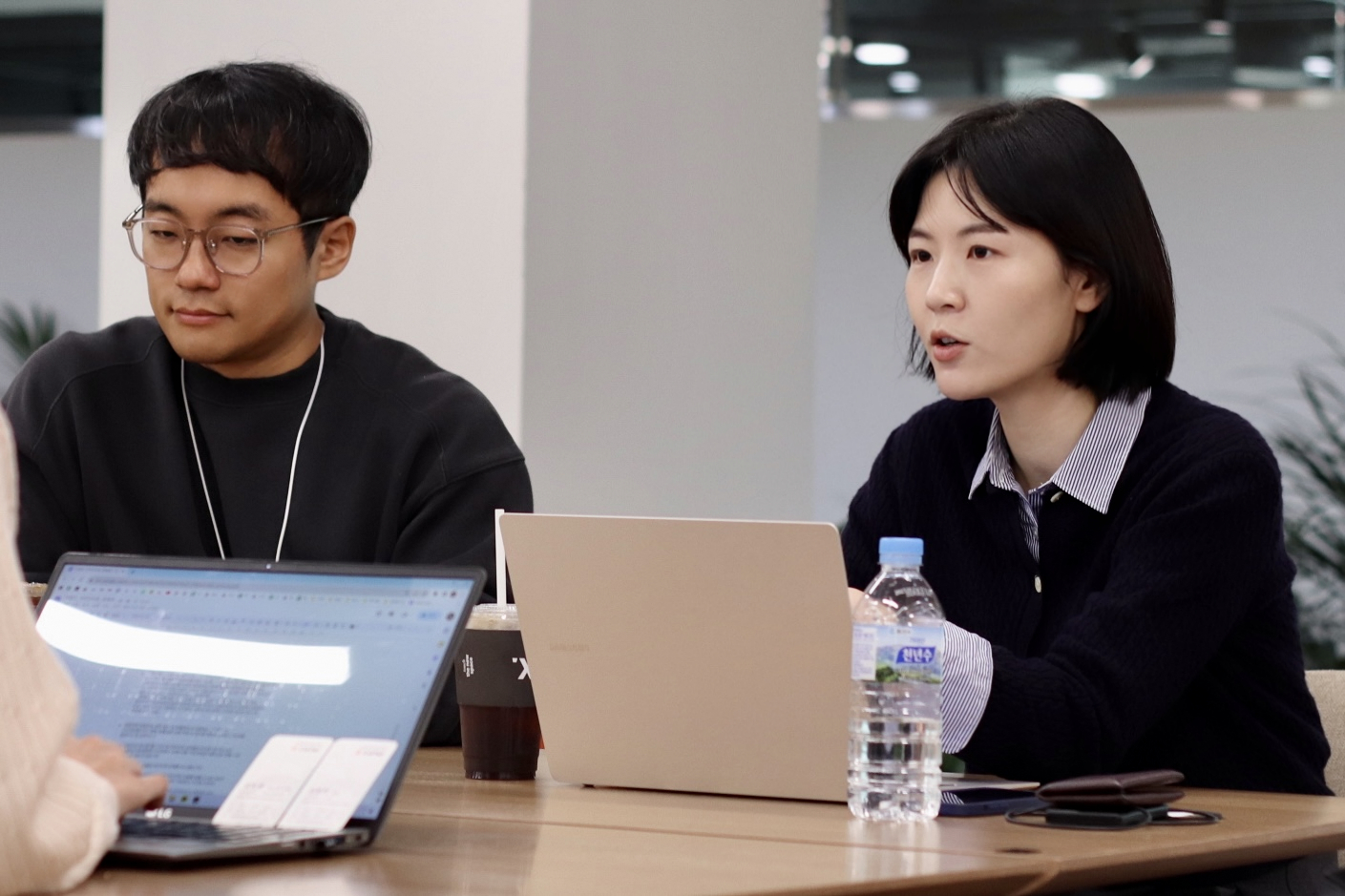
-Please introduce yourself.
Bomi Kim (hereinafter referred to as Bomi) : I am the team leader of the Business Acceleration Team at D-Camp, which runs a startup space and creates acceleration programmes.
Dowan Kim (hereinafter referred to as Dowan) : I am in charge of programme planning and running startup acceleration programmes at D.CAMP.
-Why do startup founders need mental health seminars or psychological counselling programmes?
Bomi: Starting a business is an act of extreme uncertainty, high risk and challenge. Startups need to grow to survive, but survival is not guaranteed. To use the analogy of Maslow’s Hierarchy of Needs, personal health, especially mental health, is often put on the back burner as the lowest level of survival needs go unmet.
However, running a business at such a high level of tension inevitably leads to burnout, and from what I’ve seen, entrepreneurs suffer more trauma than regular employees. They’ve put a lot on the line and risked their lives, so it’s hard for them to bounce back when things go wrong.
Jee-Hyun Ha, a professor at Konkuk University, once told me that violinists untie all the strings on their violins after playing, and then spend tens of minutes tuning them again the next day. If you think about it, it seems like you could leave the strings untied and just tune them a little the next day, but in that case the strings will stretch a little and twitch a little to tune them again. If you repeat this, the tuning will be quicker, but the strings will break quickly. Just as a tightly plucked violin string needs to be loosened for a while, people need to be loosened for a while. There needs to be a place where founders can run for the long haul, not get tired, and get back on their feet when they get burned out.
Dowan: I think the mental health of founders is directly related to the sustainability of a business. I often compare running a business to running a marathon. To grow and succeed, you have to take long breaths and run your business, and mental health is one of the enablers. In particular, mental health takes a lot of energy and time to recover once it starts to break down, so mental health seminars and psychological counselling programmes are needed to prevent this.
-As a follow-up question, I understand that the D.MIND programme has been running since 2019. Can you explain why this programme was created and what its value is? Why has D.CAMP been running this programme for five years?
Bomi: Before the pandemic, 2019 was a boom year for startups and venture capital. The number of startups receiving investment increased every year, and in 2019, new investments exceeded $3 billion (KRW 4 trillion) for the first time ever. All investors and startup support organisations were focused on growing the J-curve, increasing valuations and attracting larger investments. I was having tea with a representative of a tenant company and he told me that he hadn’t slept well for a long time. He said he was experiencing mental health issues such as anxiety about growth, pressure to attract investment and stress from running the business. I realised we were missing out on founder mindcare. I looked for information on founder mindcare programmes at the time, but they were not available. As I thought about it, I realised that although there is a lot of money invested in nurturing a business, it is difficult for investors and support organisations to provide founder mindcare because it is difficult to measure quantitative results. I thought D.CAMP was the best organisation to do this, so I promoted it.
Dowan: There was a lot of early discussion in Silicon Valley about the importance of founder mental health. In fact, there have been some effective initiatives, such as using a percentage of funding to promote founder mental health. On the other hand, in 2019, there was relatively little attention paid to the importance of founder mental health in Korea. We thought it was important to raise awareness and push the agenda to the startup ecosystem, and given the foundation’s goal to become a base camp for entrepreneurs, we thought D.CAMP could play a central role.
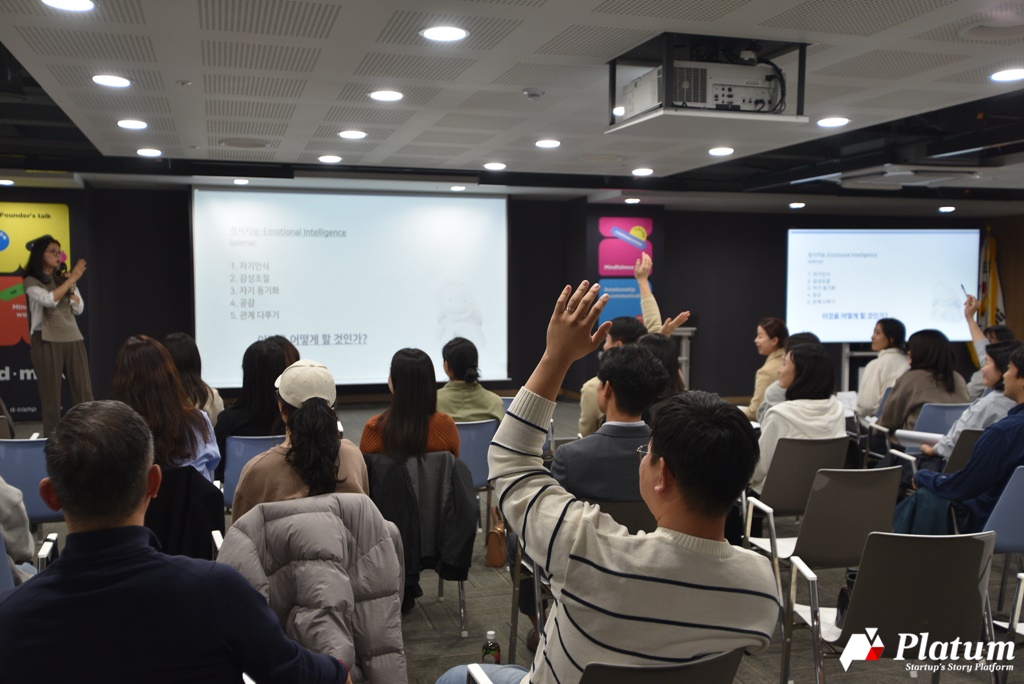
-Mental health is something that needs to be checked and managed regularly, but people tend to neglect it more than physical illnesses because of stigma. What about founders?
Dowan: Entrepreneurs are no different. I don’t think it’s that they have a problem, it’s that there’s a pervasive stigma around mental health. If you go to a psychiatrist, you’re often seen as someone with a problem. Founders, especially those with a lot of responsibility on their shoulders, are expected to present an idealised version of themselves to their teammates and the various stakeholders surrounding their company. This can make them feel uncomfortable acknowledging mental health issues or seeking professional help.
– You’ve seen a lot of examples, but have you noticed a change in founder psychology before and after COVID-19?
Dowan: I think it’s still very much influenced by the economic downturn and the investment freeze that started last year. It’s harder than ever to raise money these days, and with businesses and consumers alike tightening their purse strings, there’s more fear than ever.
-There is a categorisation of investment rounds from ‘seed’ to ‘series ABCD’ etc. It seems that later-stage founders are more stressed than early-stage founders.
Dowan: I don’t think it’s possible to compare stress levels arithmetically. Founders at all stages are exposed to a lot of stress. In terms of depression levels by investment size, the mean difference between the groups is not statistically significant.
-What was the reaction of the founders who participated in the D.MIND programme and how did they find it helpful?
Bomi: The feedback from the founders makes me think that we were right to do this. At first I think they were sceptical about the counselling because they came to the programme on our recommendation, but I’m glad they said it was effective. “I didn’t have a place to confide in, but I felt like I had found a bamboo forest where I could confide shouting and it wouldn’t be rumoured. It’s a breath of fresh air”, while others said, “The expert’s objective interpretation from a third party perspective helps me to reflect and organise myself”. In particular, many founders said: “After the consultation, I was able to objectively perceive and prioritise situations, and I was freed from obsession and stress”. This confirmed our hypothesis that the programme would not only help people’s mental health, but also their productivity and growth.
Dowan: I remember a comment that it reminded me of my roots and goals that I had forgotten due to the busyness of my job and re-energised me to run my business. D.CAMP’s mental health programmes are often run in small groups with senior founders. As each business area and situation is different, the programme is not about providing correct answers to concerns, but rather about sharing the senior founder’s journey through decisions, trials and errors, and allowing the participating founders to freely discuss them. Through this process, I think the senior founders are also reminded of their beginnings and participants are able to think naturally about their goals.
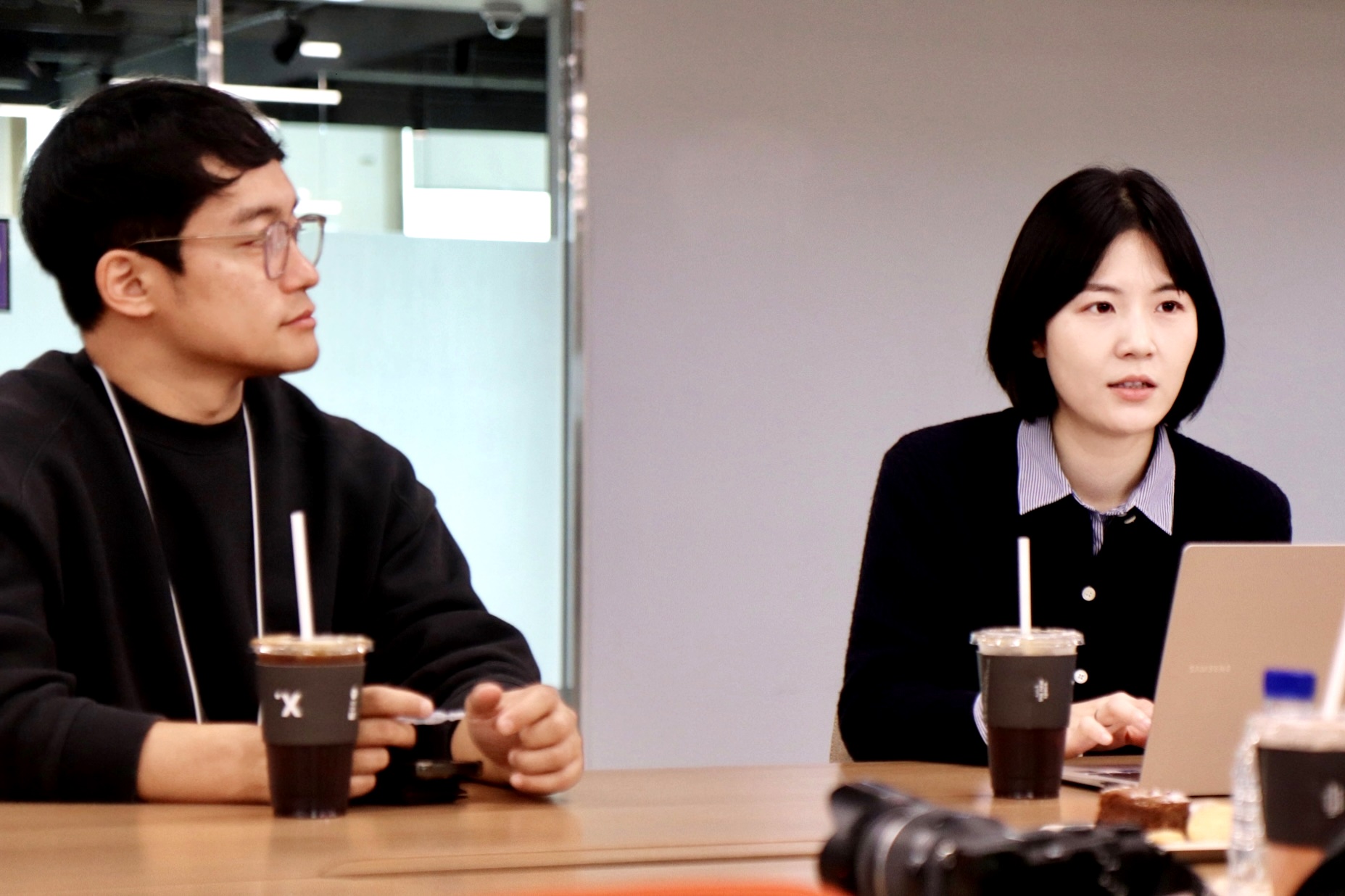
-What was the most memorable moment of the programme?
Dowan: We set an end time for the programme, but it rarely ends with a bang. Even the founders who come to the programme exhausted, the deeper they get into the conversation, the more they share their concerns and empathise, and the more the time flies by. I realised how lonely and overwhelming it is to be a founder.
Bomi : After the group sessions, I get a lot of feedback from participants who say, “I’m not the only one struggling, everyone has the same problems, and that in itself is comforting and empowering”. I think founder mindcare doesn’t have to be anything fancy, it’s just a comfortable place to talk to other founders who can open up. It is said that founders are not allowed to sigh or frown in the company. They’re worried that their dejected moods will send negative signals to their employees. It is believed that just being vulnerable with fellow founders can be beneficial to the mental health of founders who are like Superman in the company.
– Korea Startup Forum, Asan Nanum Foundation and Startup Alliance co-hosted the Startup Mindcare programme. What are the synergies of expanding the mental health programme?
Bomi : By combining the resources and expertise of the four organisations, the scope of the project has been expanded and the programme has become richer. In the case of D.CAMP, the programme has expanded from only targeting family founders. By working together, a synergy is created that engages more stakeholders in the startup ecosystem and spreads awareness of the need for such activities.
-The D.MIND programme features speakers from a variety of fields. This year you had Dr Dongseon Chang, a brain researcher, and Jee-Hyun Ha, a professor at Konkuk University, as well as writer Moon-jung Jung and Jaeyeon Park, CEO of Replus Humanlab. What are the criteria for the speakers?
Dowan: Based on the content of the Startup Founder Mental Health Survey Report, we looked for speakers who could talk about how to solve real problems that founders and startup employees are facing. The results showed that their risk of anxiety and depression is higher than that of adults in Korea. We thought that through psychiatric and neuroscientific analysis, we could identify the underlying causes of anxiety and depression and find solutions based on them. In addition, the main causes of stress included funding pressure and attracting investment, organisational management and human relations, and poor performance and underperformance, and we thought that senior founders, investors and communication experts could provide solutions and insights into each problem.
Bomi: The programme is designed not only for founders, but also for members of startups. Startups are characterised by the fact that there is no ‘direct superior’. Even if you join a company as a new employee, you have to learn and grow on your own. Therefore, many startup juniors learn by trial and error. I think what they are most thirsty for is self-improvement and a community of like-minded people. For this edition of D.MIND, three of the four programmes are open to startup team members. The programmes cover personal mission and vision, communication and resilience, so I hoped D.MIND would complement the role of a direct manager.

-As the programme deals with specialised areas, you would like to ask for advice. Where and what kind of advice do you get?
Bomi: Since 2019, when we first planned Founder Mindcare, we have received help from Professor Jeong-Hyun Kim from the Department of Mental Health at Seoul National University Bundang Hospital. She helped us in many areas, including programme design, selecting counselling agencies and recommending seminar speakers, and in 2022 we jointly facilitated a survey on founders’ mental health. Since 2019, we have been providing one-on-one counselling for founders and employees with the EEUM Psychological Counselling Institute and non-face-to-face psychological counselling with a startup called ‘Orwell Health’.
-You’re going to continue this programme in the future. What are your plans for the future, where do you want to build on this?
Dowan: When people think of mental health, they think of treatment, and when they think of going to a psychologist, they think of a problem. We can’t change society as a whole, but we want to help lower the barriers, and we plan to increase coaching programmes and mental health counselling programmes to help founders prevent mental health problems in the first place.
– Do you have any final thoughts?
Bomi : At a Mindcare seminar, a founder said: “I feel like I’m crawling through a long tunnel with no end in sight. I find it hard to fall asleep at night and wake up every morning with anxiety. I remember many founders asking themselves, “Do I really deserve to be a CEO? Despite the loneliness and difficulties, I admire how many founders try to solve problems. I want D.CAMP to be a base camp for such founders, a place where they can come back and rest when they are too tired to climb the mountain, and a safe base where it is okay to be vulnerable.







Leave a Comment